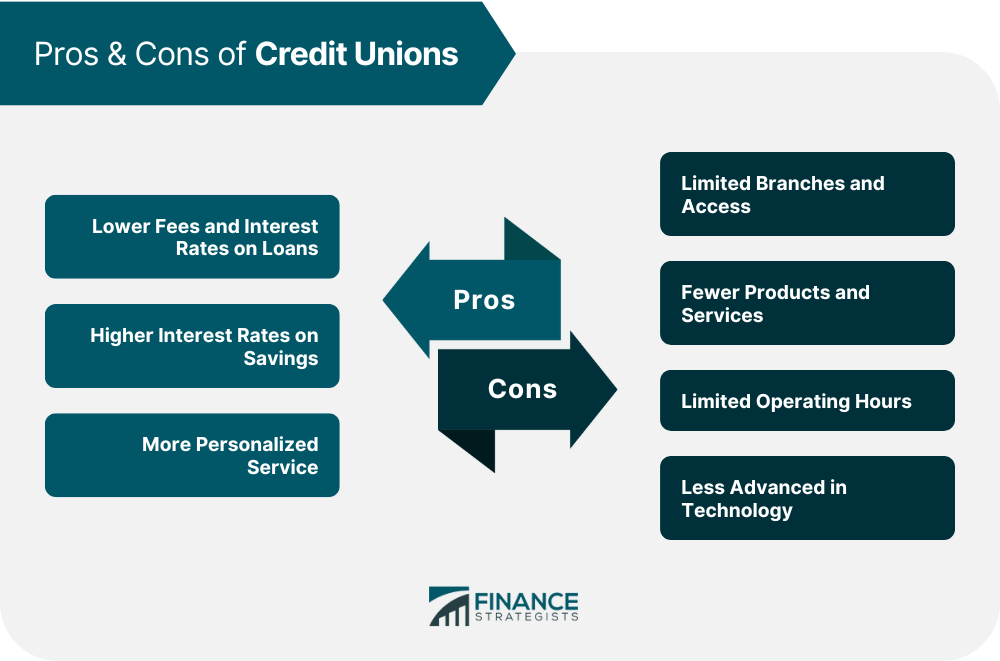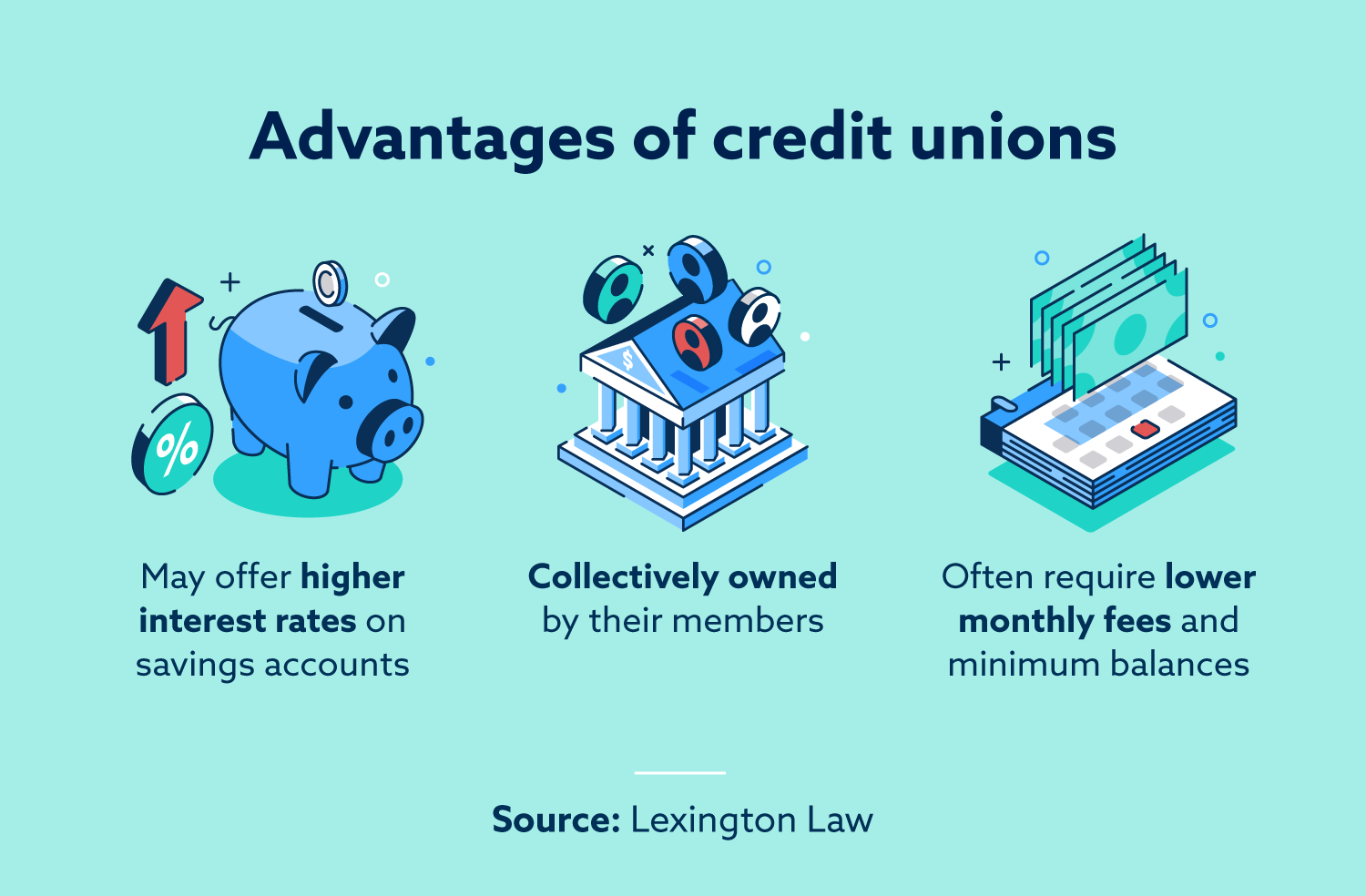Credit Unions in Wyoming: Comprehensive Financial Solutions and Participant Benefits
Wiki Article
The Ultimate Overview to Understanding Lending Institution

Cooperative credit union stand as special monetary entities, rooted in concepts of common assistance and member-driven operations. Nevertheless, past their foundational worths, comprehending the intricate workings of debt unions involves a much deeper exploration. Deciphering the intricacies of subscription qualification, the evolution of solutions used, and the distinctive benefits they bring calls for a comprehensive evaluation. As we browse with the ins and outs of credit unions, an insightful journey waits for to shed light on these member-focused establishments and exactly how they vary from traditional financial institutions.
What Are Cooperative Credit Union?
Debt unions are member-owned banks that use an array of financial solutions to their members. Unlike conventional banks, lending institution run as not-for-profit organizations, indicating their main focus is on serving their members rather than maximizing profits. Members of a lending institution typically share an usual bond, such as helping the very same employer, belonging to the same community, or being part of the same company.One of the key advantages of cooperative credit union is that they commonly use greater rates of interest on financial savings accounts and reduced rate of interest on car loans contrasted to banks. Credit Union in Wyoming. This is because credit unions are structured to benefit their members straight, enabling them to hand down their revenues in the form of much better prices and fewer fees. In addition, cooperative credit union are recognized for their customized client service, as they focus on developing partnerships with their participants to recognize their distinct economic requirements and goals
Background and Evolution of Cooperative Credit Union
The origins of member-owned economic cooperatives, known today as lending institution, trace back to a time when communities looked for alternatives to conventional financial organizations. The principle of credit rating unions come from the 19th century in Europe, with Friedrich Wilhelm Raiffeisen typically attributed as the pioneer of the participating financial motion. Raiffeisen founded the very first recognized debt union in Germany in the mid-1800s, emphasizing area support and self-help principles.The evolution of cooperative credit union proceeded in North America, where Alphonse Desjardins established the first lending institution in Canada in 1900. Quickly after, in 1909, the initial U.S. cooperative credit union was created in New Hampshire by a group of Franco-American immigrants. These early cooperative credit union operated on the essential principles of common aid, democratic control, and participant ownership.
In time, lending institution have actually expanded in popularity worldwide due to their not-for-profit structure, concentrate on offering participants, and supplying affordable monetary items and services. Today, credit scores unions play an essential duty in the monetary market, offering accessible and community-oriented banking alternatives for companies and individuals alike.

Subscription and Eligibility Criteria
Subscription at a credit rating union is usually restricted to people fulfilling details eligibility requirements based on the institution's beginning concepts and regulatory requirements. Some credit unions may only offer people who live or work in a certain location, while others may be tailored to employees of a certain firm or participants of a particular organization.Furthermore, cooperative credit union are structured as not-for-profit companies, indicating that their main objective is to serve their participants instead of create revenues for shareholders. This emphasis on member solution frequently converts into even more personalized focus, lower costs, and competitive rate of interest prices on cost savings and car loans accounts. By meeting the qualification criteria and becoming a member of a cooperative credit union, people can access a variety of monetary services and products customized to their specific demands.
Services and Products Provided
One of the vital aspects that establishes cooperative credit union apart is the diverse variety of financial solutions and items they supply to their members. Credit history unions generally offer typical banking services such as cost savings and inspecting accounts, car loans, and debt cards. Participants can additionally gain from investment solutions, consisting of pension and economic preparation aid. Several lending institution supply affordable rates of interest on cost savings accounts and finances, along with lower fees contrasted to conventional banks.Additionally, credit unions often give hassle-free online and mobile banking choices for members to quickly manage their finances. They might supply advantages such as common branching, enabling members to access their accounts at various other credit report unions throughout the nation. Some cooperative credit union also provide insurance policy products like vehicle, life, and home insurance to aid members shield their properties and enjoyed ones.

Benefits of Financial With Debt Unions
When considering monetary establishments, discovering the benefits of financial with credit history unions discloses unique benefits for participants looking for personalized service and competitive prices. Unlike large financial institutions, credit rating unions are member-owned and prioritize structure strong relationships with their participants. On the whole, banking with a credit score union can give a more individualized, affordable, and member-centric financial experience.Verdict
Finally, cooperative credit union stick out as member-owned banks that focus on offering their members over optimizing earnings. With beginnings going back to 19th century Europe, credit unions follow principles of mutual support and participant ownership. They supply a series of economic solutions and products, including standard banking solutions, financial investment alternatives, and affordable rate of interest. Subscription qualification criteria specify and reflect a community-oriented approach, giving individualized customer support and a member-centric financial experience.
Credit scores unions are member-owned financial institutions that provide a variety of banking services to their members. The concept of credit history unions stem in the 19th century in Europe, with Friedrich Wilhelm Raiffeisen often credited as the pioneer of the participating banking activity.The development of credit rating unions proceeded in North America, where Alphonse Desjardins developed the first credit history union in Canada in 1900. Credit report unions commonly supply traditional banking Credit Union in Wyoming solutions such as savings and examining accounts, fundings, and credit history cards.When thinking about monetary organizations, discovering the advantages of banking with credit unions exposes distinct advantages for participants seeking personalized service and affordable prices.
Report this wiki page